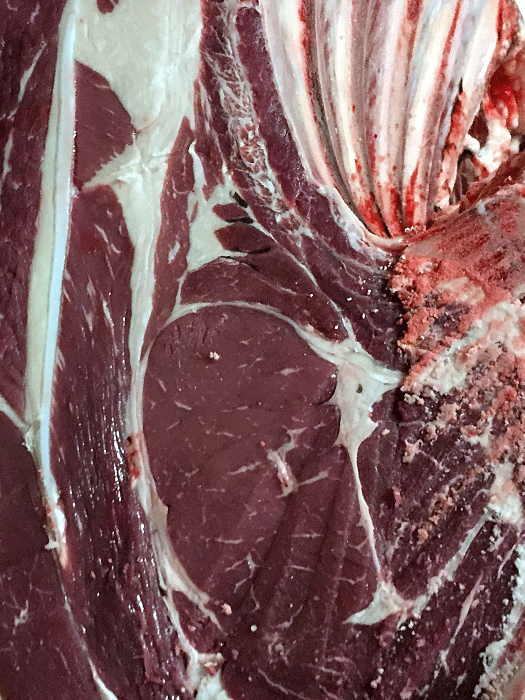Orkney Beef (PDO)
Knowing where our ingredients come from is at the heart of what we do in L'escargot restaurants. Of course, most restaurants would make the same claim. However, just seeing the provenance label on a piece of lamb, pork or cod is not enough for me. I like to meet the people who catch, raise, grow and harvest the food that we cook in our kitchens.
Which is why, after another anxious flight, I recently found myself on Orkney. I was there to meet local butcher Ali Flett and visit the farms which produce the local beef. You can tell a lot about the way cattle are raised by how they react to a visit. If they panic and run to the other side of the shed that tells you something about how they are treated. By contrast, the cattle I saw on Orkney were inquisitive and would come to us. They were content.
Ali is part of a consortium which is trying to ensure that Orkney beef retains its Protected Designation of Origin (PDO) status. You can get the full information on what this means here.
In brief, Orkney beef's PDO status is important because it sets out and protects the regional characteristics which make it unique. It is a combination of the local feed, breed and traditional husbandry techniques which make Orkney beef 'distinctly different in terms of flavour and palatability' from that produced elsewhere in the United Kingdom.
Surprisingly, the sun was shining during my two days on Orkney but more the usual high rainfall is just one of the Orkney factors that produces the lush grass which the cattle graze on. In other words, it is a taste of the land that produced it.
If you are disappointed by generic 'Scotch beef' - an almost meaningless label - Orkney beef (PDO) is a premium, sustainable alternative which is rooted in, and the unique product of, a clearly defined geographic area. To qualify for PDO status, Orkney beef must be born, reared and slaughtered in Orkney. The criteria are strictly defined and it can take years to verify those criteria and be awarded PDO status.
And this is where things get difficult. Orkney has a state of the art abattoir which can process 200 head of cattle a day. It is currently doing around 20 a week. Many Orkney farmers are paid a subsidy to have their cattle slaughtered on the mainland.
Beef which is produced in this way loses its PDO status but can still be called Orkney beef. Most consumers do not differentiate between the two and this erodes and chips away at the prestige of PDO status Orkney beef. If consumers don't ask for PDO Orkney beef, demand will fall, Orkney's abattoir will close and the PDO status will be lost for years, perhaps permanently.
We use Orkney beef (PDO) in L'escargot restaurants because it is an excellent, high quality product with a unique texture and flavour. Having seen the cattle in their byres, I also know that they are raised to the highest standards of animal husbandry.
Just as important is that by using Orkney beef with PDO status we, and our customers, are helping to preserve a unique regional tradition. We are keeping alive and celebrating a way of producing beef which can only be found on Orkney. We think that is worth doing.
We are happy to be corrected but we also think that we are the only restaurant in Edinburgh, perhaps the Central Belt, which is selling Orkney beef (PDO). As a restaurateur, it is always good to be doing something different from other restaurants but, in this case, we would be absolutely delighted if other chefs followed suit and supported Orkney beef (PDO)

